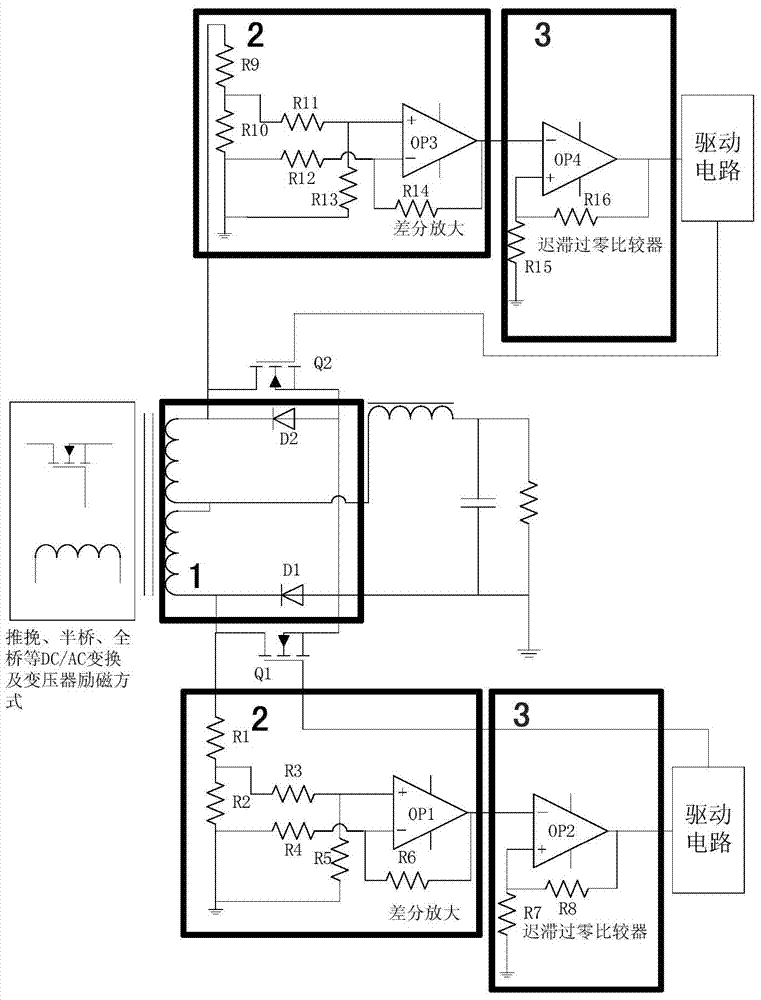Synchronous rectifying circuit and implementing method
A synchronous rectification and circuit technology, applied in the direction of electrical components, output power conversion devices, etc., can solve the problems of high cost of control IC, unsuitable topology, difficult control signal acquisition of converters, etc., to achieve wide range of load current variation, The effect of a wide input voltage range
- Summary
- Abstract
- Description
- Claims
- Application Information
AI Technical Summary
Problems solved by technology
Method used
Image
Examples
Embodiment Construction
[0020] The technical solution created by the present invention is described in detail in conjunction with the accompanying drawings and specific embodiments.
[0021] A synchronous rectification circuit, including two MOSFETs respectively connected to the opposite ends of the full-wave rectification winding of the transformer, the first MOSFET and the second MOSFET are symmetrically connected to a group of opposite ends of the full-wave rectification winding of the transformer, and the first MOSFET and The source of the second MOSFET is connected to the ground of the output terminal of the switching converter; the source of the first MOSFET is connected to the anode of the first diode, and the drain is connected to the cathode of the first diode; the source of the second MOSFET is connected to the second The anode of the diode is connected to the drain of the cathode of the second diode. The drain of the first MOSFET is connected in series with the first resistor, the third re...
PUM
 Login to View More
Login to View More Abstract
Description
Claims
Application Information
 Login to View More
Login to View More - R&D
- Intellectual Property
- Life Sciences
- Materials
- Tech Scout
- Unparalleled Data Quality
- Higher Quality Content
- 60% Fewer Hallucinations
Browse by: Latest US Patents, China's latest patents, Technical Efficacy Thesaurus, Application Domain, Technology Topic, Popular Technical Reports.
© 2025 PatSnap. All rights reserved.Legal|Privacy policy|Modern Slavery Act Transparency Statement|Sitemap|About US| Contact US: help@patsnap.com

